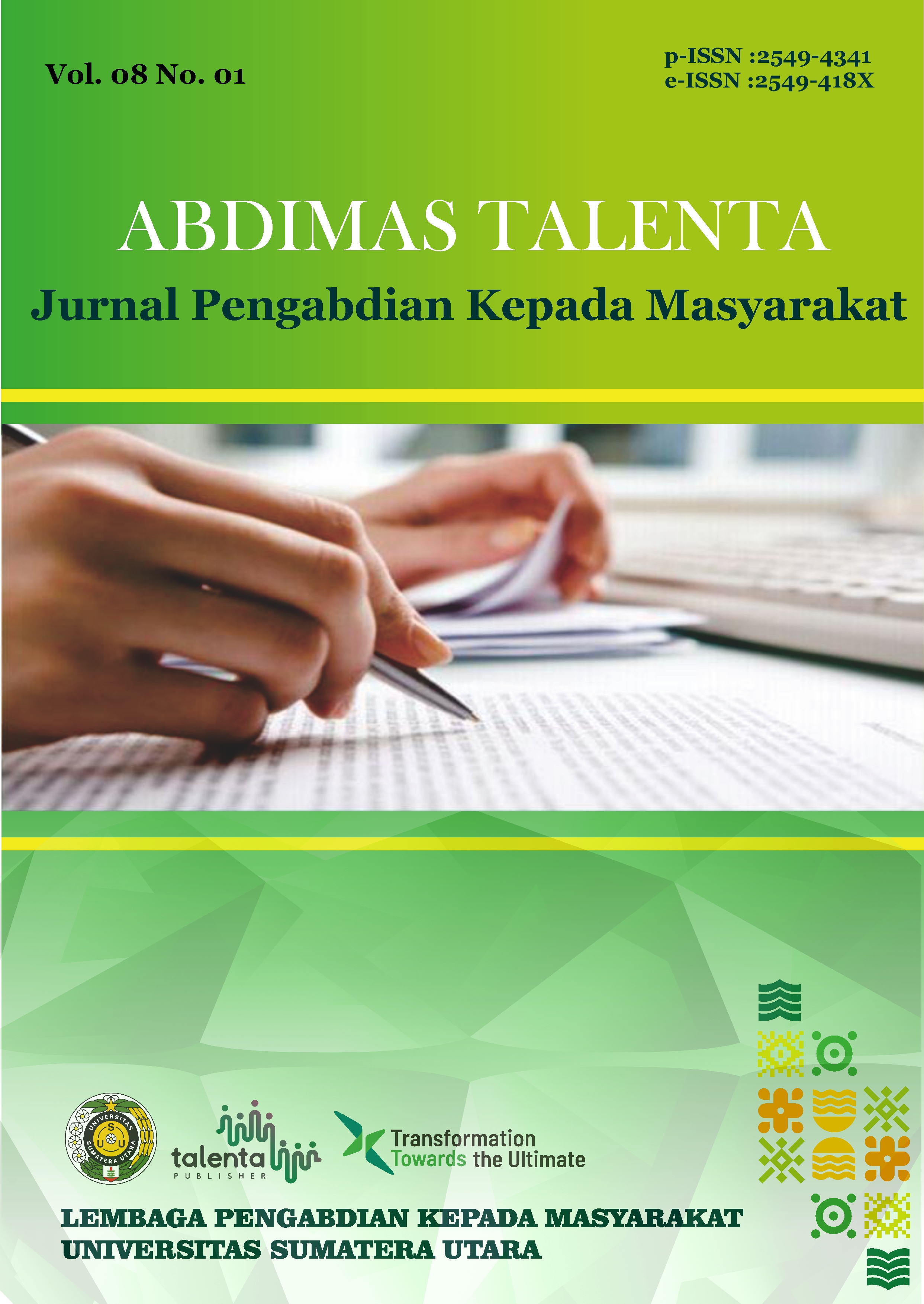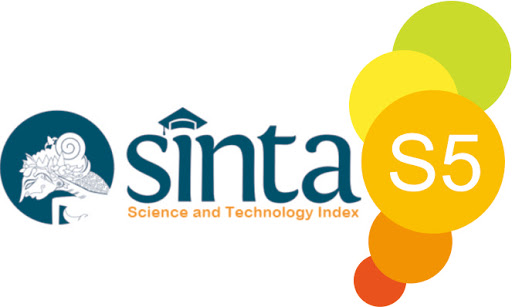Commumity Empowerment in Making Village Renstra in Merek District
DOI:
https://doi.org/10.32734/abdimastalenta.v8i1.9427Keywords:
Participatory Planning, Village Strategic Plan, EmpowermentAbstract
Community empowerment in the field of village planning towards an independent village is part of an effort to improve the standard of living and the economy of the community in the village which is still in a condition that has not been able to escape from poverty and underdevelopment, when in fact the potential of the village at this time can make a significant contribution to improving the standard of living of the community. community income. Dokan Village as one of the tourist destinations in Karo Regency does not have a draft village development document that is oriented towards strengthening the village government. The Dokan Village Government tends to carry out normative development, as a result, the potential wealth of tourism in Dokan cannot be maximized. Research on community empowerment in the making of the village strategic plan in the District of Mark is able to answer matters relating to the reality related to the condition of village tourism, especially in Dokan Village, which shows that the development of tourist villages and tourism potential is not being managed optimally. The research objectives are (1) to describe the potential of Dokan tourism village in supporting village development; (2) to analyze the human resources of the Dokan Village community related to the knowledge factor of the Dokan Village community; (3) to analyze the level of empowerment in tourism village development and its correlation in increasing the income of rural communities; and (4) to formulate a village development strategy in improving the facilities, quality and management of Dokan Village tourism.
Downloads
Downloads
Published
Issue
Section
License
Copyright (c) 1970 ABDIMAS TALENTA: Jurnal Pengabdian Kepada Masyarakat

This work is licensed under a Creative Commons Attribution-ShareAlike 4.0 International License.
The Authors submitting a manuscript do so on the understanding that if accepted for publication, copyright of the article shall be assigned to Jurnal Abdimas TALENTA as well as TALENTA Publisher Universitas Sumatera Utara as the publisher of the journal.
Copyright encompasses exclusive rights to reproduce and deliver the article in all forms and media. The reproduction of any part of this journal, its storage in databases and its transmission by any form or media, will be allowed only with written permission from Jurnal Abdimas TALENTA.
The Copyright Transfer Form can be downloaded here.
The copyright form should be signed originally and sent to the Editorial Office in the form of original mail or scanned document.












